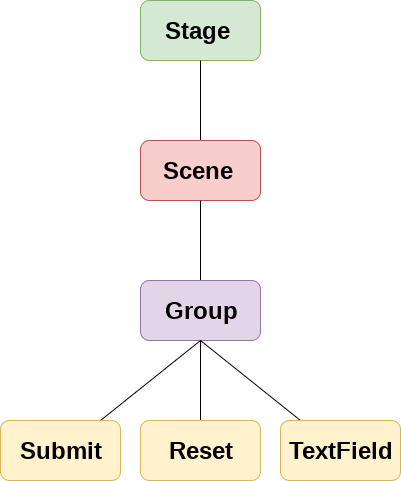JavaFX Event HandlingJavaFX provides us the flexibility to create various types of applications such as Desktop Applications, Web applications and graphical applications. In the modern day applications, the users play a vital role in the proper execution of the application. The user need to interact with the application in most of the cases. In JavaFX, An event is occurred whenever the user interacts with the application nodes. There are various sources by using which, the user can generate the event. For example, User can make the use of mouse or it can press any button on the keyboard or it can scroll any page of the application in order to generate an event. Hence,we can say that the events are basically the notifications that tell us that something has occurred at the user's end. A perfect Application is the one which takes the least amount of time in handling the events. This part of the tutorial This part of the tutorial describes the way in which the events are handled in JavaFX. Types of EventsIn general, the events are mainly classified into the following two types. 1. Foreground EventsForeground events are mainly occurred due to the direct interaction of the user with the GUI of the application. Such as clicking the button, pressing a key, selecting an item from the list, scrolling the page, etc. 2. Background EventsBackground events doesn't require the user's interaction with the application. These events are mainly occurred to the operating system interrupts, failure, operation completion, etc. Processing Events in JavaFXIn JavaFX, events are basically used to notify the application about the actions taken by the user. JavaFX provides the mechanism to capture the events, route the event to its target and letting the application handle the events. JavaFX provides the class javafx.event.Event which contains all the subclasses representing the types of Events that can be generated in JavaFX. Any event is an instance of the class Event or any of its subclasses. There are various events in JavaFX i.e. MouseEvent, KeyEvent, ScrollEvent, DragEvent, etc. We can also define our own event by inheriting the class javafx.event.Event. The properties of an event is described in the following table.
Event Delivery ProcessThe following steps need to be followed in order to handle the events. 1. Route ConstructionAn Event Dispatch Chain is created in order to determine the default route of the event, whenever it is generated. The Event dispatch chain contains the path from the stage to the Node on which the event is generated. An event dispatch chain is created in the following image for the event generated on one of the scene graph node. 
2. Event Capturing PhaseOnce the Event Dispatch Chain is created, the event is dispatched from the source node of the event. All the nodes are traversed by the event from top to bottom. If the event filter is registered with any of these nodes, then it will be executed. If any of the nodes are not registered with the event filter then the event is transferred to the target node. The target node processes the event in that case. 3. Event BubblingOnce the event is processed by the target node or by any of the registered filter, the event traverses all the nodes again from the bottom to the stage node. If any of these nodes are registered with the event filter, then it will get executed otherwise the process gets completed. 4. Event Handlers and FiltersEvent Handlers and filters contains application logic to process an event. A node can be registered to more than one Event Filters. The interface javafx.event.EventHandler must be implemented by all the event handlers and filters.
Next TopicJavaFX Convenience methods
|
 For Videos Join Our Youtube Channel: Join Now
For Videos Join Our Youtube Channel: Join Now
Feedback
- Send your Feedback to [email protected]
Help Others, Please Share










